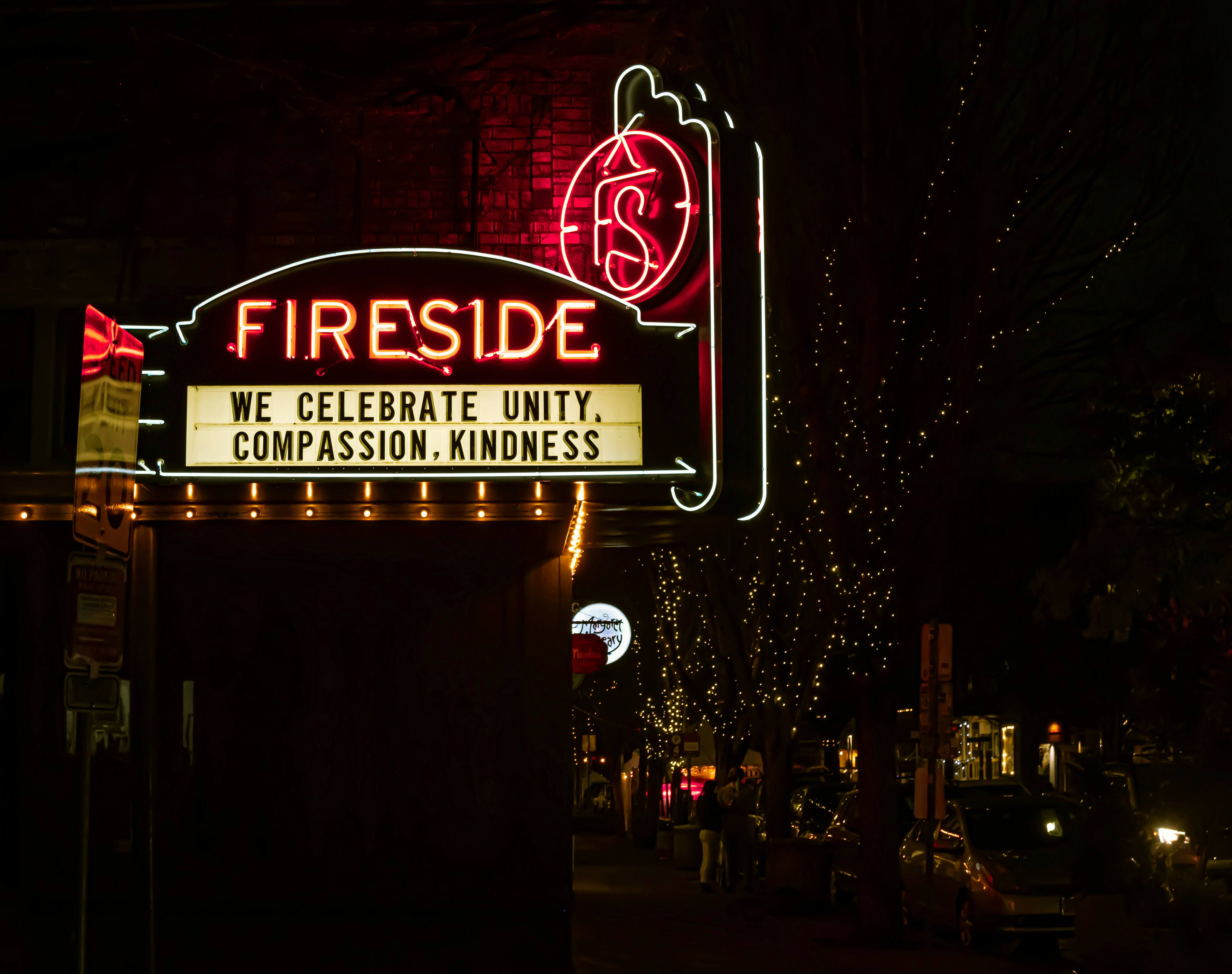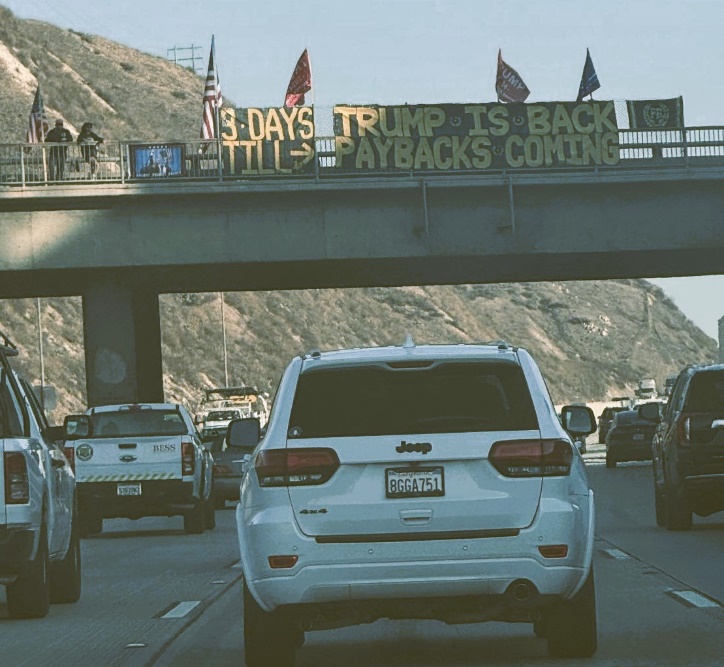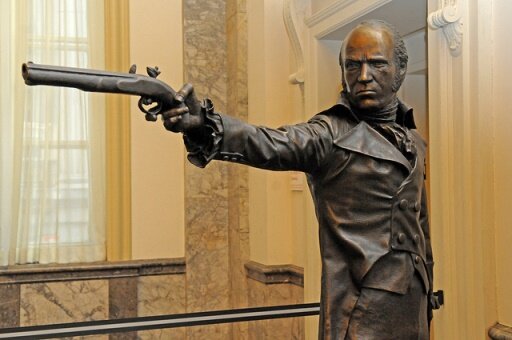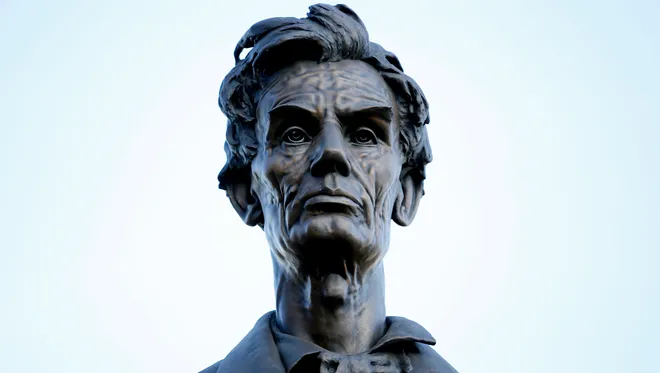We live in a divided era.
Some people fear civil rights, healthcare, and democracy slipping away. Others celebrate a leader they believe will restore order and values. Both sides are gripped by narratives of existential stakes, where the other side’s success feels like a threat to everything they hold dear.
A few days ago, I saw a photo of people standing on a freeway overpass in a working class area of Southern California, holding signs that read, “Three Days Till Trump is Back, Paybacks Coming.” The misspelled words weren’t what stood out. What struck me was the effort behind the display—spending a day on an overpass not to inspire or unite but to celebrate retribution. It was a declaration, not of hope, but of vengeance. This wasn’t an isolated incident. I see similar displays in my community, a place known for its well-educated population and median household income significantly higher than the state average. The same fear-driven division has found a foothold even in a city characterized by affluence and opportunity.
This image reflects a troubling reality: fear and anger have consumed many of us. Whether it’s fear of losing rights or fear of cultural decline, these emotions drive us to see one another not as neighbors but as enemies.
This is not new.
History is full of moments where fear and division have taken hold. Gore Vidal, with his sharp critiques of American history, reminds us that today’s struggles are echoes of the past. Meanwhile, Adam Curtis’s HyperNormalisation explores how these divisions can be manufactured, trapping us in simplified, adversarial narratives. While the film leans a bit too conspiratorial for my taste, it’s still worth watching to understand how others perceive the forces shaping our world. Recognizing these patterns allows us to move beyond fear and work toward connection.
Lessons from Gore Vidal: History is a Cycle
Gore Vidal once remarked, “The United States was founded by the brightest people in the country—and we haven’t seen them since.” His critique of modern leadership resonates deeply, but his work also reminds us that history is a cycle of struggle and progress and that greatness is not confined to the past.
In his book, Burr, Vidal dismantles the myth of America’s pure and virtuous founding, showing how power struggles and political manipulation were present from the start. His Aaron Burr is not a caricatured villain but a complex figure navigating a nation built as much on ambition and greed as on ideals. Similarly, in Lincoln, Vidal humanizes one of America’s most revered leaders. His version of Lincoln is that of a shrewd, pragmatic man who balances enormous political and moral challenges rather than a saintly figure. These stories challenge us to see the present with nuance: no leader is perfect, but even flawed individuals can guide us through turbulent times.
Vidal also critiques the military-industrial complex and warns against eroding democratic principles. In his essay “Perpetual War for Perpetual Peace,” he argues that perpetual conflict consolidates power and wealth for a select few. Today’s fears about authoritarianism, corporate control, and inequality echo Vidal’s warnings, reminding us that these struggles are deeply ingrained in our history.
The Reality We’re Sold: HyperNormalisation’s Warning
Adam Curtis’s HyperNormalisation exposes how governments and corporations create simplified narratives to maintain control. These stories reduce complex realities into binaries—good vs. evil, us vs. them—making manipulating public perception and stoking division easier. This reminded me of an experience from elementary school, where a Cuban American classmate, clearly echoing something heard at home, declared, “Reagan created war, and that’s why he’s a bad man.” The political tension between the U.S. and Cuba during that era likely shaped his family’s perspective, illustrating how cultural and personal histories can profoundly influence how we interpret broader narratives.
Curtis reveals how the West demonized Muammar Gaddafi in the 1980s, simplifying him into a villain to distract from more profound political failures. Similarly, the rise of neoliberalism sold the idea that markets could solve all problems, stripping governments of their ability to protect the vulnerable. Curtis argues that these narratives trap us in a hyper-normalized state where we accept distorted realities because the alternative feels unthinkable.
The freeway photo is a microcosm of this dynamic. It reflects how fear and anger, amplified by media and politics, can drive us to see our fellow citizens as adversaries rather than allies in a shared struggle. This mindset directly opposes the biblical call to live in peace and harmony with one another. As Paul writes in Romans 12:18: ‘If it is possible, as far as it depends on you, live at peace with everyone.’ Peace requires effort and intentionality, even in disagreement. Instead of allowing fear to divide us, we must pursue understanding and reconciliation.
A Friend’s Fear
A friend recently shared a long and thoughtful list of beliefs using the template, “I will not ‘work together’ to…” It included important principles, such as refusing to restrict healthcare for women, normalize tyranny, eliminate ethical oversight at any level of government, deny healthcare to people with pre-existing conditions, or weaken environmental protections. The list was detailed and reflective, and as I read through it, I found myself agreeing with many, if not all, of the statements. If asked, I would sign it without hesitation.
Their words reflect a deep concern that hard-won rights and protections are under threat. On the other side, there are people who fear losing their culture, their religion, or their sense of economic stability. These fears may stem from different places, but they are rooted in the same emotion. The challenge is not whose fear is valid but how we address these fears without losing sight of our shared humanity.
The Brightest People Are Still Here
Gore Vidal’s critique of leadership challenges us to demand better from those in power. But it also invites us to recognize that brilliance isn’t confined to the past. It’s present in the scientists developing renewable energy solutions, the educators inspiring the next generation, and the activists fighting for justice. It’s in the parents raising compassionate children, the volunteers supporting their communities, and the artists envisioning better futures.
On this Martin Luther King Jr. Day, we are reminded of the transformative power of ordinary people rising to extraordinary challenges. Dr. King’s leadership during the Civil Rights Movement was a beacon of hope, but he didn’t act alone. He stood on the shoulders of countless activists, families, and community leaders who faced injustice with courage and conviction. Their collective brilliance created a legacy that continues to inspire us to this day.
Even in politics, transformative leadership can arise in unexpected ways. Abraham Lincoln, as Vidal portrayed him, was not universally admired in his time, but he guided the nation through its darkest period. Similarly, the Civil Rights Movement of the 1960s was driven by ordinary people with extraordinary courage. These stories—and the legacy of Dr. King—remind us that greatness often emerges in response to crisis.
Moving Forward Without Fear
To bridge our divides and move forward, we must:
-
Learn from History: As Vidal’s Burr and Lincoln remind us, political chaos and division are not new. Recognizing these patterns helps us approach today’s challenges with perspective and resilience.
-
Challenge Simplified Narratives: Curtis’s HyperNormalisation teaches us to question the stories we’re told. Why are certain groups cast as villains? Who benefits from our division? By seeking nuance, we can resist manipulation.
-
Focus on Shared Goals: Whether we fear for the environment, civil rights, or economic stability, most of us want fairness, security, and dignity. We can work together to address these challenges by emphasizing what unites us.
Rising Above Fear
Fear is a powerful force. Hope is even stronger.
If people care enough to stand on a freeway overpass or write passionately about their beliefs, they are engaged and believe change is possible. The challenge is to channel that energy into something constructive rather than destructive.
As Curtis warns, we must resist being trapped in false realities. Vidal reminds us that history shows that humanity is capable of extraordinary resilience and progress.
Choose connection over division, hope over fear. The brightest people are not just in the past—they are here now, in the work we do, the lives we lead, and the love we show one another. As Galatians 6:9 reminds us: “Let us not grow weary of doing good, for in due season we will reap, if we do not give up.” Through perseverance and compassion, we can shape a future where understanding replaces anger, kindness overcomes hostility, and unity triumphs over division.
Marcelo Bermudez is the CEO of Shōkunin, a commercial real estate and business capital and strategy advisory firm.
As a strategist, keynote speaker, and mediator, he helps owners and investors unlock value and achieve their business and financial goals.
With hands-on experience managing businesses and navigating complex commercial real estate transactions, Marcelo understands the challenges of growth, restructuring, and successful exits.
He works closely with his clients to deliver practical solutions and drive results.
As a strategist, keynote speaker, and mediator, he helps owners and investors unlock value and achieve their business and financial goals.
With hands-on experience managing businesses and navigating complex commercial real estate transactions, Marcelo understands the challenges of growth, restructuring, and successful exits.
He works closely with his clients to deliver practical solutions and drive results.




